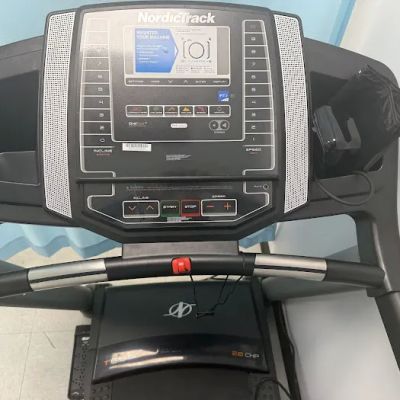- 1 - Why Exercise Matters for Your Heart
- 2 - Exercise Guidelines for Heart Health
- 3 - Best Types of Exercise for Your Heart
- 4 - Real-Life Stories of Heart Health and Exercise
- 5 - Tips for Staying Consistent and Motivated
- 6 - Creating a Sustainable Heart-Focused Routine
- 7 - Expert Insights and Final Thoughts
1. Why Exercise Matters for Your Heart
Your heart is a muscle, and like every other muscle in your body, it gets stronger the more you use it. Cardiovascular exercise helps your heart pump more efficiently, lowers blood pressure, improves circulation, and reduces the risk of chronic diseases like heart disease and diabetes. In the United States, where heart disease is the leading cause of death, adopting exercise guidelines can make a life-saving difference.
Studies show that even moderate physical activity such as brisk walking for 30 minutes a day can reduce the risk of heart-related illnesses by up to 35%. More than just numbers, exercise also improves quality of life. It helps you sleep better, boosts energy, and reduces stress—all critical factors for maintaining a healthy heart. In many cases, exercise can be as powerful as medication when it comes to controlling high blood pressure and cholesterol levels.

2. Exercise Guidelines for Heart Health
According to the American Heart Association, adults should aim for at least 150 minutes of moderate-intensity exercise per week or 75 minutes of vigorous activity. These heart exercise guidelines are flexible and can be broken down into manageable sessions throughout the week. What matters most is consistency.
Here are some practical guidelines to keep in mind:
- Warm-up and cool down: Always begin with 5–10 minutes of light stretching or walking to prepare your heart and muscles.
- Mix it up: Combine aerobic exercise like cycling or jogging with strength training to maximize heart benefits.
- Listen to your body: Pay attention to signs of fatigue, shortness of breath, or chest pain. Safety should always come first.
- Consistency over intensity: Regular movement is more beneficial than occasional bursts of extreme effort.
Atlanta Heart Specialists
atlanta heart specialists
4375 Johns Creek Pkwy #350, Suwanee, GA 30024, USA

3. Best Types of Exercise for Your Heart
When people ask about the best workouts for heart health, the answer often depends on their lifestyle and preferences. Still, there are some proven categories of exercise that consistently deliver cardiovascular benefits:
Aerobic exercise: Activities like brisk walking, swimming, and cycling improve your heart’s ability to pump blood and increase oxygen flow. Aerobic exercise is often considered the backbone of heart health routines.
Strength training: Building muscle mass through weightlifting, resistance bands, or bodyweight workouts helps maintain a healthy weight and reduces stress on the heart. Muscle tissue also improves metabolism, indirectly supporting cardiovascular fitness.
Flexibility and balance: While yoga or tai chi may not directly strengthen the heart muscle, they reduce stress levels, improve posture, and support overall body health—key factors in long-term heart wellness.
4. Real-Life Stories of Heart Health and Exercise
Consider the story of Mark, a 52-year-old office worker from Chicago who was diagnosed with high blood pressure. His doctor recommended lifestyle changes, including exercise. At first, Mark felt overwhelmed. But by starting with 10-minute walks during his lunch break, he gradually built up to jogging three times a week. Within six months, his blood pressure normalized, and he lost 20 pounds. His energy improved so much that he started biking with his kids on weekends.
Stories like Mark’s show how applying exercise guidelines can be transformative. Each step, no matter how small, contributes to better heart health. Sharing real-life examples also helps readers feel motivated and confident that they can achieve similar success.
5. Tips for Staying Consistent and Motivated
One of the biggest challenges in moving for your heart is staying consistent. Life often gets in the way, and motivation can fade. Here are some proven strategies to keep you going:
- Find joy in movement: Choose activities you actually enjoy. Dancing, hiking, or even gardening can count as heart-healthy exercise.
- Set realistic goals: Small, achievable milestones keep you motivated. For example, start with walking three times a week before progressing to jogging.
- Track progress: Journals, apps, or smartwatches can help you measure improvements and stay accountable.
- Community support: Exercising with friends, joining a class, or being part of a heart health program adds accountability and fun.
At HeartCare Hub, we recommend products and services that support these goals, from fitness trackers to heart-friendly meal planning tools, so you can stay on track with confidence.
6. Creating a Sustainable Heart-Focused Routine
The key to long-term success is creating an exercise routine that fits naturally into your lifestyle. If your schedule is hectic, short bursts of activity like 10-minute stair climbs or evening stretches can still count toward your weekly goals. Focus on building habits that feel realistic, rather than trying to overhaul your life overnight.
Another important aspect is recovery. Rest days allow your heart and muscles to recover, preventing injury and ensuring sustainable progress. Nutrition also plays a role—balanced meals with lean proteins, whole grains, and healthy fats provide the energy you need for effective workouts.
7. Expert Insights and Final Thoughts
Experts agree that moving for your heart is one of the most effective ways to prevent cardiovascular disease and improve quality of life. Exercise guidelines are not one-size-fits-all, but they offer a flexible framework that anyone can adapt. Whether it’s walking the dog, cycling to work, or joining a local yoga class, every movement counts.
When paired with healthy eating and regular checkups, exercise becomes a powerful tool for heart health. The earlier you start, the more benefits you’ll enjoy—but it’s never too late to begin. Taking the first step today may be the decision that saves your life tomorrow.
By following these tips and focusing on consistent, enjoyable activities, you can build a sustainable lifestyle that keeps your heart strong and resilient for years to come. For tailored product recommendations and supportive resources, remember to explore HeartCare Hub, your trusted partner in heart wellness.





















Deborah Heart and Lung Center
deborah heart and lung center
200 Trenton Rd, Browns Mills, NJ 08015, USA